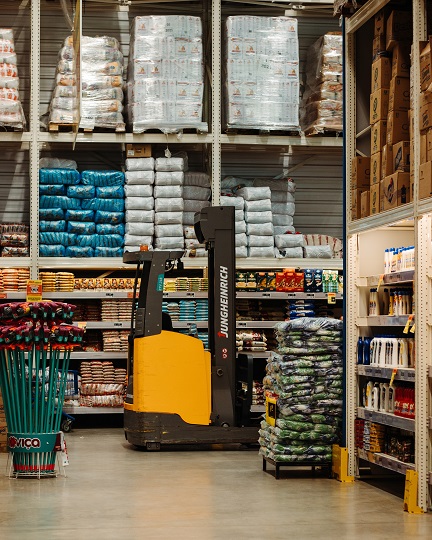In the fast-paced world of the Fast-Moving Consumer Goods (FMCG) industry, you’re no stranger to the constant changes and challenges that come your way.
Among these challenges is the task of handling raw materials that have gone past their expiry date.
In this blog post, we’ll dive into a situation you might encounter – a surplus of expired raw materials – and explore the intricate choices that you, as a business player in the FMCG sector, have to confront.
We’ll discuss the crucial role played by Quality Control, the implications for the future, strategies to prevent such situations, adherence to food safety regulations, supply chain management, and the pivotal decisions you’ll need to make when it comes to using or discarding expired raw materials.
But, before we delve deeper into this topic, make sure you have also followed my LinkedIn account to gain more insights on supply chain management.
Table of Contents
The Dilemma You Face: Abundance of Expired Raw Materials
As someone deeply involved in the FMCG sector, you might often come across the challenging situation of having an excess of expired raw materials.
This scenario puts you in a predicament: even though the supplier’s indicated expiry date has passed, your internal Quality Control team may strongly believe that these materials are still suitable for use.
This contrasting viewpoint gives rise to crucial questions: Which course of action should your business take? Is it wise to rely more on your team’s evaluations rather than adhering to the supplier’s provided expiration date?
This situation presents you with a fundamental dilemma, requiring thoughtful consideration and informed decision-making.
Quality Control: Your Guide to Deciding Raw Material Usability
In your role within the FMCG industry, Quality Control (QC) takes on a central role in safeguarding the integrity and safety of your products.
When it comes to assessing whether expired raw materials can still be put to use, QC becomes your guiding force.

QC teams, of which you are a part, are responsible for conducting rigorous tests and evaluations to determine the quality, safety, and appropriateness of raw materials.
When your QC team confirms that the material remains within acceptable standards, their expertise and thorough evaluations hold significant weight.
Despite this, a perplexing situation arises: Should you prioritize your team’s internal assessments over the expiration date set by the supplier?
Striking the right equilibrium between trusting in your QC team’s proficiency and adhering to the supplier’s guidelines is of paramount importance.
As you grapple with this choice, it’s essential to weigh the advantages of your team’s insights against the externally provided information from the supplier.
You might also like:
- Unlocking Progress: The Power of Embracing Change
- Transform Your Supply Chain with Real-Time Data: Here’s How You Can Do It
Looking Ahead: Your Strategies and Preventive Measures
As you navigate the dynamic landscape of the FMCG industry, the task of preventing raw materials from expiring before they’re utilized calls for proactive planning and the adjustment of multiple variables.
In this regard, accurate planning is your ally, and it involves making well-informed decisions about aspects such as Minimum Order Quantities (MOQs) and order sizes.
Tailoring these factors to match your specific requirements can have a substantial impact on reducing the surplus of raw materials.
This process entails delving into a comprehensive understanding of consumer demands, accounting for seasonal shifts, and keeping a finger on the pulse of market trends.
By staying attuned to these dynamics, you position yourself to make more precise predictions about what you’ll need and when.
Moreover, technology becomes a crucial tool in your arsenal.
Predictive analytics, for instance, empowers you to anticipate demand patterns based on historical data and other pertinent factors. This foresight enables you to fine-tune your procurement strategies in alignment with projected needs.

What’s more, collaborative efforts among different departments such as procurement, production, and sales can yield impressive results.
By pooling your collective insights, you can optimize the use of resources and minimize the risk of excess materials languishing unused.
This way, you not only ensure that materials are efficiently used but also contribute to a leaner and more responsive operation.
Food Safety Compliance: Balancing Act You Must Master
In your role within the FMCG industry, you’re likely aware that while Quality Control (QC) assessments could indicate that expired raw materials are still safe for use, the matter of food safety compliance takes center stage.
Regulatory bodies are entrusted with setting standards to uphold the well-being and safety of consumers like you.
This is where the delicate balancing act comes into play.
Even though your QC team may assure you that the expired materials are within acceptable limits, you cannot overlook the significance of adhering to food safety regulations.
These regulations are in place to guarantee that products reaching consumers meet specific safety standards.
In certain instances, opting to use expired materials might run counter to these regulations, exposing your business to potential legal consequences and causing harm to your reputation.
Given these complexities, it’s imperative that you possess a comprehensive grasp of both local and international food safety standards.
Armed with this knowledge, you’re better equipped to make informed decisions about whether to utilize expired raw materials or not.
In doing so, you find yourself adeptly navigating the intricacies of compliance while prioritizing the health and trust of your consumers.
Supply Chain Management: Your Key to Overcoming Challenges
In your dynamic role within the FMCG industry, you’re well aware that the supply chain serves as the bedrock of the entire operation.
Effective management of this intricate network can significantly improve how you handle the challenges tied to expired raw materials. This is where your strategic prowess comes into play.

To start, open and clear communication with your suppliers is paramount.
Engaging in transparent conversations about various aspects like material quality, shelf life, and potential extensions can offer valuable insights that guide your decision-making.
By fostering an environment of open dialogue, you equip yourself with a deeper understanding of the raw materials’ status and potential usability.
Moreover, cultivating a robust and symbiotic relationship with your suppliers can yield collaborative solutions.
For instance, negotiating smaller batch sizes or implementing just-in-time manufacturing can tangibly diminish the likelihood of surplus raw materials reaching their expiration. These measures can contribute to a more streamlined supply chain and efficient utilization of resources.
In essence, your role in supply chain management isn’t just about logistics – it’s about orchestrating a harmonious symphony of communication, collaboration, and efficiency.
By leveraging these elements, you’re better equipped to tackle the complexities of managing raw materials in the FMCG sector, ensuring that valuable resources don’t go to waste.
You might also like:
- Stay Ahead of the Curve: Strategies for Excelling in Supply Chain Planning with Varying Lead Times
- Improving Your Bottom Line: Why You Can’t Overlook the Importance of Routine Performance Reviews
Decisive Choices: To Use or Discard? Your Considerations Matter
In your role within the FMCG industry, the pivotal decision of whether to use or discard expired raw materials is anything but straightforward.
It’s a multifaceted choice that necessitates a comprehensive viewpoint encompassing various aspects.
As you stand at this crossroads, it’s important to approach the decision with a discerning eye.
Here’s a breakdown of the key factors you should take into account.
Quality Control’s Expertise
Your first port of call is the insights from your Quality Control (QC) team.
Placing trust in their assessments is crucial, given the rigorous testing and evaluation processes they undertake.
Their expertise serves as a guiding light in determining the viability of these materials for further use.
Regulatory Compliance
Equally vital is ensuring alignment with food safety standards.
Using expired materials might seem plausible based on QC evaluations, but you must weigh this against the legal and reputational risks that non-compliance could bring.
Upholding food safety regulations is paramount to safeguarding both your consumers and your business.
Supplier Communication
Engaging in transparent discussions with your suppliers is another integral aspect.
Their insights into material quality and potential solutions can provide invaluable context.
This collaborative approach strengthens your decision-making by integrating external perspectives.
Preventive Measures
Before reaching a conclusion, consider the preventive measures you have in place.
Accurate planning, adjustments in order sizes, and leveraging predictive analytics can collectively contribute to avoiding a surplus of raw materials that might expire unused.
In essence, your role is to weigh these factors collectively and make an informed choice.
By taking into consideration QC expertise, regulatory compliance, supplier insights, and preventive measures, you set the stage for a decision that takes into account not only the immediate circumstances but also the long-term impact on product quality, consumer safety, and overall operational efficiency.
Conclusion: Navigating the Complex Terrain with Your Expertise
As someone deeply involved in the FMCG industry, you’re well aware of the intricate challenge presented by the abundance of expired raw materials.
The contrasting signals stemming from supplier expiration dates and internal Quality Control assessments call for a delicate equilibrium in your approach.
This intricate situation where quality, safety, compliance, and supply chain management converge demands a multifaceted decision-making process.
Amidst this challenge, your sector stands at a juncture that requires harnessing the collective wisdom of your Quality Control teams.
Transparent collaboration with suppliers becomes crucial, as does aligning practices with regulatory guidelines.
By doing so, your industry is primed to not only address the immediate predicament of excess expired materials but also chart a trajectory toward a future that’s more sustainable and efficient.
In this ever-evolving industry, it’s the informed decisions you make that lay the foundation for sustained success and continued growth.
Your capacity to deftly handle these complexities is a testament to your expertise and dedication to steering your industry toward a brighter future.
Hope it is useful!
Please share this article with your colleagues as well, so that they can also benefit from it. Follow my LinkedIn account for more insights on supply chain management. All articles on this blog are free for you to use for any purpose, including commercial use, without the need for attribution.

 by
by 

